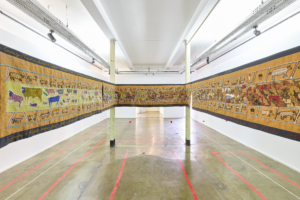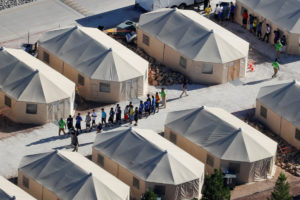You’ve probably heard of Matthew Desmond’s ideas, even if you haven’t heard his name. He’s an author, MacArthur Fellow, and a professor of Sociology at Princeton University, and his book Evicted won the 2017 Pulitzer Prize and changed how America thinks about housing.
Desmond is a preeminent expert on poverty—a topic that he says affects all Americans regardless of their income level. As he mentions often in our conversation, America is not strapped for cash—yet more than 38 million people in America can’t afford basic necessities—like food, housing, and medicine. On top of that, there are millions of Americans who earn too much annual income to qualify for government assistance but not nearly enough to get by, especially as the cost of living continues to rise.
In his latest book: Poverty, by America, Desmond looks at the ways in which many Americans privately struggle with the hidden, yet omnipresent reality of poverty. His latest research aims to make this struggle more visible, and reveals poverty as a systemic problem in need of a systemic solution. And since this past Tuesday, October 17, was the International Day for the Eradication of Poverty, we wanted to share a conversation that offers some solutions to do just that.
Tune in every Thursday, and join us as we continue to explore the minds that shape our world. You can listen to the full episode in the player above, but here are a handful of excerpts from our conversation, which have been condensed and edited for clarity.
On how losing his childhood home to eviction affected his understanding of poverty:
It was devastating for the family. It was part of a long unwinding, you know, where my parents declared bankruptcy and it was the capstone of a series of painful events. And experiencing that as a young man, my story was personal: It was dad’s fault, it was mom’s fault. It was something that stayed within the family. And I think that my job as a sociologist is to make personal problems, political problems: to take something that can feel very personal and be encased in shame and say, look, you’re not the only one dealing with this and this isn’t all on you. And I think that that kind of is a very liberating mission for the job I have now.
On how poverty is about more than just money:
Poverty isn’t just an income level, right? That’s just the start. Poverty is telling your kids they can’t have seconds, on top of dealing with the backache you got from working these hard jobs, on top of not being able to go to the doctor, on top of getting roughed up by the police, on top of the nauseating fear of eviction and homelessness, and often depression, sometimes incarceration, on and on it goes. So I think that poverty isn’t just the experience of having not enough money. It’s this exhausting piling on of problems. And I think that should motivate us, give us a sense of moral urgency, because it means that scores of Americans are living without dignity and safety in this land of dollars.
On who benefits from poverty:
We are. Big tent “we.” I don’t just mean “we” the guy that’s like a little richer than you. I often mean us: you, me, a lot of folks probably listening to this…. a lot of us consume the cheap goods and services the working poor produce. A lot of us talk about shareholder capitalism as if shareholders were like 12 guys in dark suits in Manhattan. But like a lot of us are shareholders…
Every year over $11 billion in overdraft fees, $1.6 billion in check cashing fees, about $10 billion in payday loan fees are charged to poor families. That’s $61 million pulled out of the pockets of the poor every single day. So who benefits from that? Many of us who have free checking accounts also benefit from that, because it turns out our accounts aren’t free. They’re subsidized by overdraft fees that are charged to only 9% of bank clients who are the poor, made to pay for their poverty.
Or if you look at housing exploitation, who’s benefiting from incredibly high rents in poor neighborhoods? Well, some landlords are benefiting, sure, but some homeowners often are too. You know, our property values are propped up by our collective effort to make housing scarce and expensive.
So I think many times when we kind of scratch below the surface, we learn that our lives are not just different from the poor, but we’re connected. We’re connected in an intimate way, we’re part of a shared community.
Write to Charlotte Alter at charlotte.alter@time.com.




